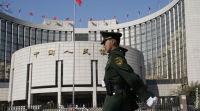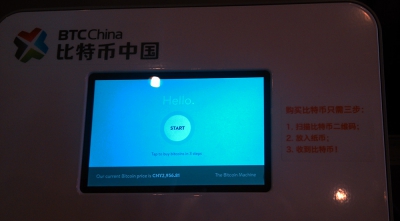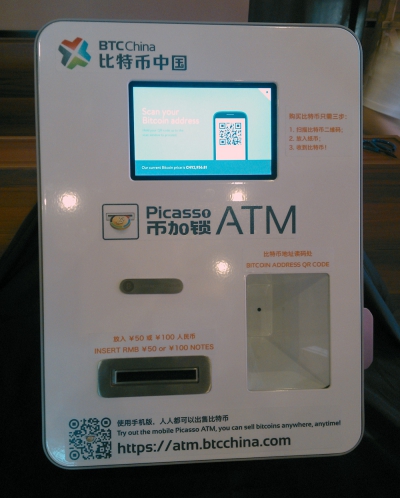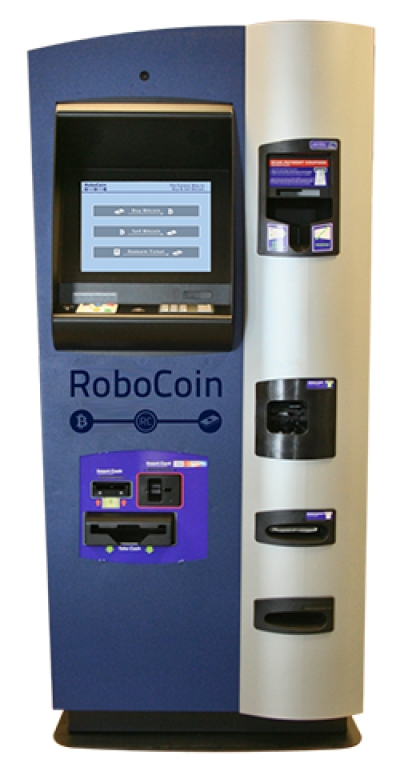The (Qingdao) Blockchain Research Company released a set of ratings for various blockchain projects on May 17th, 2018. The company is related to China Center for Information Industry Development (CCID), led by Ministry of Industry and Information Technology (MIIT), part of the national government, but it would be wrong to read that this is any sort of acceptance of crypto by the Chinese government.
Blockchain technology has become one of the most popular topics in China today as it moves beyond conversations in the tech industry to normal individuals in their everyday lives. It is easy to catch a conversation about ideas of blockchain at a restaurant, on a bus, or in a club from people excited about the investment opportunities of blockchain projects, or even just blockchain ideas.
Blockchain technology's momentum has grown significantly in China and it’s clear that this technology is here to stay. Since Chinese New Year, frequent good news has accelerated this trend – The People’s Daily published a whole page talking about how to develop this technology, and it’s been a hot topic even in the ongoing “two sessions” National Party Congress.
The top three tech giants in China - Baidu, Alibaba and Tencent, previously did not talk much about their blockchain development, but with a much more receptive public and regulatory environment, they have revealed a bit more about where they have been focused.
The Great Crypto-Wall of China
China is on the verge of creating another uninviting barrier for the cryptocurrency market, however nothing has been set in stone yet. Xinhua, one of the main news outlets in China, released another elusive yet pressing statement on February 5, 2018 laying out some of the government's plans to further hinder Chinese citizens from accessing international cryptocurrency exchanges and ICOs.
Is Facebook looking to launch a cryptocurrency?
Bitcoin has grown rapidly in 2017 and its grabbed the attention of industry leaders and CEO’s, including Facebook founder Mark Zuckerberg. In January, Zuckerberg released a comment that indicated that Facebook will be looking to research and potentially adapt Blockchain technology.
XRP has become one of the most hyped cryptocurrencies, outperforming both Bitcoin and Ethereum last year. Much of the hype comes from XRP’s connection to its creator company Ripple Labs, but this link may not be as useful as many hope.
The recent hype around Bitcoin continues to bring uncertainty to the financial stability of countries. Whilst some countries are accepting Bitcoin others are rejecting it and the threats that they perceive it holds.
New Crypto Regulations in South Korea Sends Bitcoin Tumbling
Evident concern on the volatility and the unforeseeable future of cryptocurrency exchanges have caused the South Korean government to take heightened steps to further inspect new crypto-trading accounts due to an “overheated market” and a number of money-laundering cases. The announcement of this act alone was followed by a downward spiral of 11% in Bitcoin's value.
Is China's crackdown on Bitcoin the end of Bitcoin in China?
China has long seemingly been opposed to all things crypto, having previously banned ICO’s and virtual currency trading. However, in the latest development of China’s war on crypto, it is now reportedly set to shut the Bitcoin mining industry.
The case for national digital currencies
With the craze surrounding Bitcoin, many are concerned that the crypotcurrency’s price is over valued and a result of too much hype. However, Blockchain, the technology behind Bitcoin, is captivating the attention of many and is widely regarded as the future of technology. So much so in fact, many countries have already launched or begun looking into the possibility of creating their own Blockchain based, state sponsored cryptocurrencies.
Bitcoin and blockchain technology has raised the specter of dis-intermediation for the leading global banks in the last few years.
Current Blockchain Developments and Future Outlook
The crypto space is evolving rapidly, from bitcoin in 2009 to over 900 different crypto-currencies in 2017. The space is emerging and developing at an exponential rate. Blockchain technology has been following a similar trend with more and more potential uses being found every day. The potential for innovation is endless, this is only the beginning.
Strict ICO Regulations China Are the Right Choice. But Is This ‘One-size-fits-all Policy’ the Right Answer?
There has been significant news published in the last week regarding regulation around initial coin offerings (ICOs) especially around the Chinese Government's position on ICOs in China. Finally, at 3.00pm, September 4th this Monday, seven important Chinese government departments including the PBOC, issued an announcement to stop any ICO transactions and defined ICOs in China as illegal fund raising. Strict ICO regulatory is the right choice but is this ‘One-size-fits-all Policy’ the right answer?
China, Regulation, and ICOs
For several weeks earlier this year, the PBOC (Peoples Bank of China) focused on bitcoin exchanges and halted crypto-currency withdrawals from the main exchanges; now ICO’s (initial coin offerings) have grabbed their attention. With ICO’s growing in popularity they are hard to ignore, In China since the beginning of the year there have been 65 ICO’s, that have raised over 2.6 billion RMB. As such, the PBOC has been considering banning ICO’s as they expose investors to a very high risk and “illegally absorb public funds.”
A brief on ICOs
Over the past few weeks, little-known ICOs have grabbed the media's attention. ICOs, or 'Initial Coin Offerings', have become a new way for individuals and start-ups to obtain funding. A significant number of these ICOs are originating from China, so we decided to take a look at the dynamics behind these new funding vehicles.
Blockchain technology has become one of the hottest topics in China Fintech. So when Ant Finance, the most valuable tech unicorn company in the world, announced they were working on a blockchain-based solution for the charity space, it captured lots of attention - but what is behind the move?
Bank of America Merrill Lynch recently confirmed the application of the block chain-based technology to trade finance transactions. This is a clear indication from the traditional banking sector of their support for the disruptive technology. The bitcoin’s underlying technology finally is seeing practical use.
Last week China’s central bank announced the possibility of launching its own digital currency on its official website. What is behind the government's push to launch a digital currency? Control money outflow? Better monitor cash transactions?
So over the past week, the internet has been aflutter with talk of Bitcoin and China again. A March 10th Goldman equity research note entitled 'The Future of Finance' offered a few comments about Bitcoin in China seem to have reignited the debate about Bitcoin's place in the Middle Kingdom. There are a lot of misconceptions out there, we felt we needed to set a few of them straight.
Bitcoin mining in China on your own is over
According to the latest hardware specifications of bitcoin mining manufacturers, even with it no longer makes sense for individuals to mine on their own - even in China where electricity is somewhat cheaper. Except if they are willing to wait a long time.
Can Ripple make a splash in China?
Ripple Labs announced partnerships with two U.S. banks, which will allow their customers to make same-day distributed money transfers at a very low-cost. How about partnering with Chinese banks? Could Ripple in China work with banks in a space where Bitcoin in China has struggled?
What the Future holds for Bitcoin and Virtual Currencies
Bitcoin has seen its reputation in the eyes of the general public drop following various security breaches (i.e. Mt Gox) that have left many uncertain about the digital currency’s legitimacy and future. In addition, people are starting to question if Bitcoin really has a place in the market and if there is actually a problem that it solves – there is almost a malaise in the eyes of many who are getting tired about reading about it. Although Bitcoin might be hitting headwinds, security enhancements are underway and blockchain technology seems to be thriving.
China Bitcoin Exchanges 2.0
Seven months after the PBOC's crackdown on bitcoin exchanges in China and we're seeing a resurgence in talk about what Chinese bitcoin exchanges are doing and where they are going. While accusations of falsifying trading data and questions about bitcoin's future in China still abound, China's bitcoin exchanges want to move on and forget the past, but are they going in the right direction?
Chomping at the Bitcoin - a book by Zennon Kapron
We are pleased to announce the release of Zennon Kapron's book on the Past, Present and Future of Bitcoin in China. "Chomping at the Bitcoin" will be released on the 25th of August.
Macao Monetary Authority Regulating Bitcoin
After successive Bitcoin crackdown by mainland regulators, banks and online merchants, Bitcoin is left hanging in China.
Bitcoin in China, where to go?
Fiona Zhao, one of our analysts here at Kapronasia, has been covering bitcoin in China from the beginning. Here she lays out the reasons why bitcoin in China won't survive.
China's First Bitcoin 'ATM' - Our First Impressions
After couple of months of low trading volume and little news, BTC China, previously the largest and still one of the most prominent bitcoin exchanges in China has moved the goalposts for other exchanges (and the PBOC!) by launching the first physical Chinese Bitcoin 'ATM' at the IC Coffee Shop in Zhangjiang Hi-tech Park in Shanghai on Tuesday the 15th. In addition to the physical ATM, BTC China released a new mobile Web appcalled “Picasso ATM”, which is actually the main theme of the ATM launch.
On China's supposed bitcoin 'd-day', April 15th, BTCChina launches Shanghai ATM what could be the country's first bitcoin ATM. Kapronasia was onsite on launch day and will have an update tonight on our experience using the ATM.
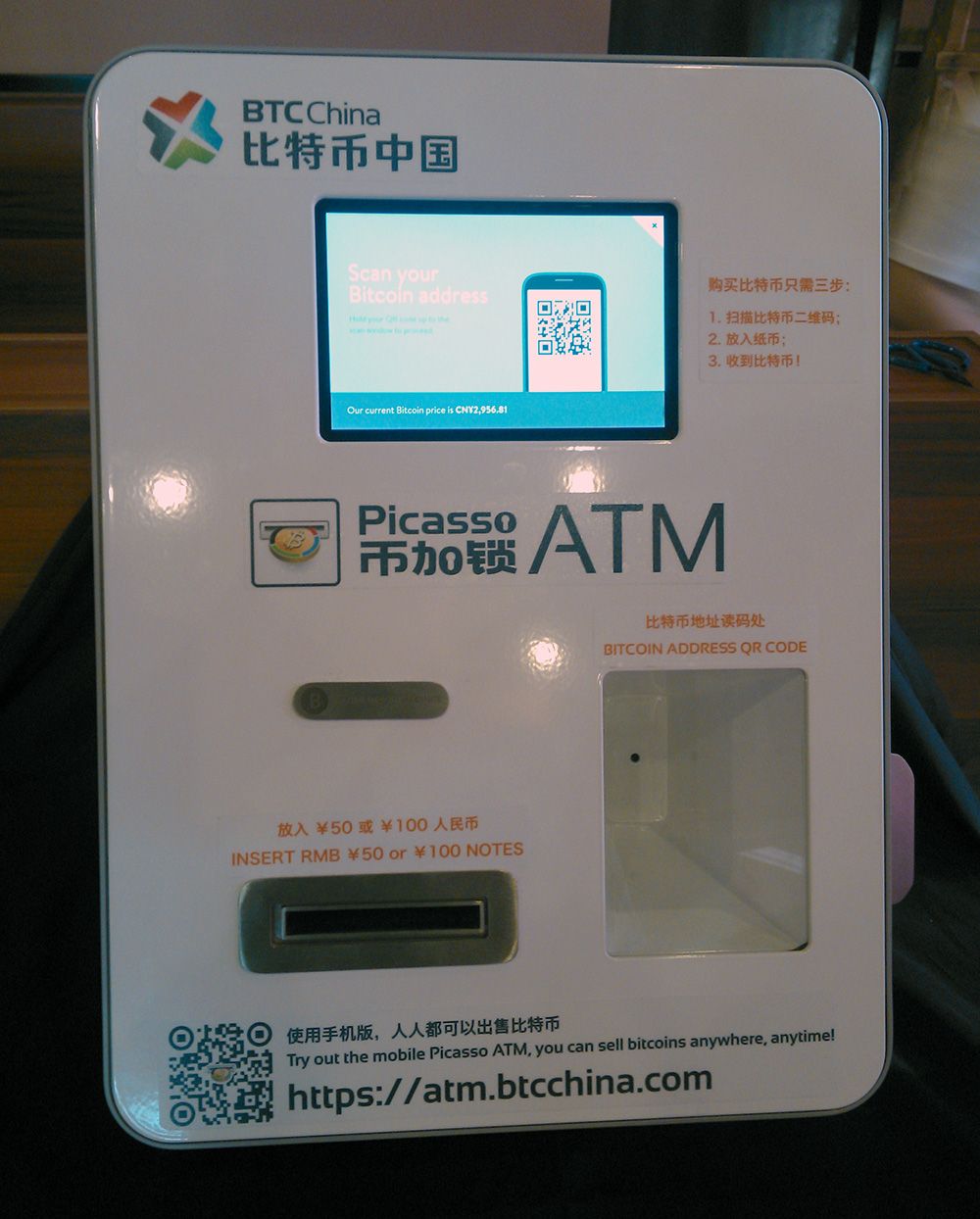
Bitcoin in China 2014: Individuals
As Chinese New Year wraps up and people (very!) gradually come back to work in mainland China, we wanted to take a step back and look at where we are with Bitcoin in China for the year of the horse.
Of Bitcoin ATMs and regulation in Asia
Over the past week, Robocoin Technologies announced they were expanding their Bitcoin ATM offering into Asia with planned ATM installs in Taiwan and Hong Kong.
More...
Bitcoin in China: so where are we now?
It sounds trite if you’ve read my other posts on Bitcoin in China, but ‘wow! What a week it has been for Bitcoin in China’. With the PBOC effectively cutting off (legal) funding of accounts on exchange platforms, is there a future for the currency in China?
PBOC notice on Bitcoin hurts online and offline acceptance in China
Kapronasia began researching Bitcoin in China in August 2013. Our Bitcoin in China report released on September 18th mentioned that in the future there would be two factors that really influence the fate of Bitcoin in China: the Chinese government’s attitude towards Bitcoin and Bitcoin’s acceptance as a method of payment, at least initially, by merchants.
China 2013 in (brief) Review
2013 will remembered as an incredibly dynamic year for China’s financial services industry. From the increasing number of hedge funds in the market to the emergence and regulation of Bitcoin, industry observers, investors, participants and regulators have had their work cut out for them keeping up with the market.
The year started out with the prospects of a new government taking a new stance on reforming what had been a highly regulated financial services industry; we weren’t disappointed. Regulators unveiled a reform agenda both at the fall plenary session and throughout the year that has, and will have, a significant impact on interest rate reform, capital market investment in and out of China and the financial industry as a whole. Although some of the measures are still somewhat vague, some of the implementations, including the removal of the floor on lending rates, have already have a significant impact on banking profitability – it will be a new market in 2014.
China's finance in 2013 also brought an increased focus on development zones and centers. Opened to much fanfare, but little detail, the Shanghai Pilot Free Trade Zone (FTZ) was formally established in late September. Although it is still early days, if news reports and indications from the regulators are to be believed, the FTZ promises to be a new test-bed of reform for ‘value-add’ services similar to what Shenzhen was to the manufacturing / production industry in the late 70s and early 80s; arguably, one of the most important developments in China’s economic history. Smaller initiatives such as the Hongkou Hedge Fund Center in Shanghai sought to make it easier for hedge funds to enter the market and trade on China’s expanding base of capital markets products.
And last but certainly not least, we would be remiss if we didn't touch on Bitcoin. Chinese investors and tech enthusiasts were truly ‘chomping at the bit’ in 2013 as Bitcoin went from a little known US$13 cryptocurrency, to a US$1,000 potential economic destabilizer. China topped the world in Bitcoin wallets in May 2013 and then surpassed that again in November with over 150,000 wallet downloads. With the world’s biggest Bitcoin exchange and increasing popularity, China had little choice but to weigh in on the matter and in early December the People’s Bank of China annouced that Bitcoin was not a currency, banks could not deal in it, yet it could continue to be used in China. The price of Bitcoin fell, only to rise almost immediately afterward.
Will the sequel to 2013 in 2014 be as exciting? Will Xi Jinping continue to push reforms? Can the PBOC accept Bitcoins as a legitimate currency? Whatever happens, 2014 will be another dynamic year for Chinese markets and we’ll be here every step of the way to help you understand what’s happening in China’s financial services industry.
What the Chinese government notice means for Bitcoin
From purchasing property with Bitcoins, to the world’s largest Bitcoin exchange, to incredible mining operations, China over the past few months has become the largest Bitcoin market in the world and a key part of the Bitcoin story.


